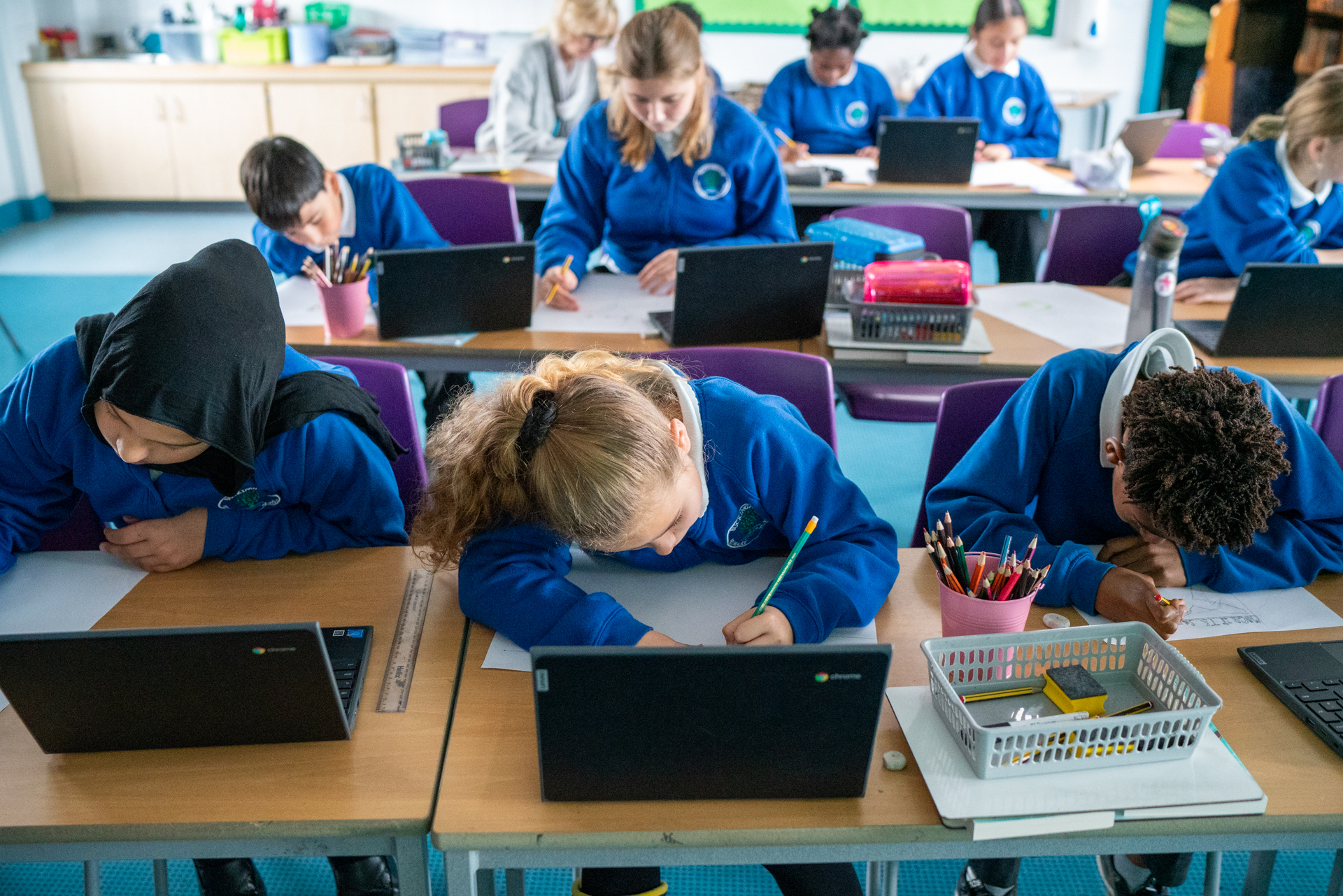Computing
A high-quality computing education equips pupils to use computational thinking and creativity to understand and change the world.
Curriculum Intent
At Buckingham Primary School, we strive for all of our children to be safe and responsible digital citizens. When planning and teaching Computing, we believe that it is an essential part of the curriculum; a subject that not only stands alone but is woven and should be an integral part of all learning. The core of our computing curriculum is Computer Science in which pupils are introduced to a wide range of technology including: laptops, iPads, Learn Pads and interactive whiteboards, allowing them to continually practise and improve the skills they learn. This ensures they become digitally literate so that they are able to express themselves and develop their ideas through information and computer technology at a level suitable for the future workplace and as active participants in a digital world.
Early Years Foundation Stage
In EYFS, the children begin to recognise how a range of technology is used in places such as homes and school for different purposes. During the continuous provision, children gain confidence to explore these and practise related key vocabulary through the use of the interactive white board, computers, I-pads and various programmable toys.
Key Stage One and Key Stage Two
Our Computing curriculum is delivered through iCompute for Primary schools, a whole-school scheme of work which fully meets the objects of the National Curriculum and allows for clear progression in computing. The curriculum is based on the following key strands:
- Computer Science
- Information Technology
- Digital Literacy
- E-safety

This is how we teach computing (Implementation)
The Computing curriculum is taught through the iCompute units. Each year group covers six or seven units throughout the year. Computing is taught either weekly or fortnightly but in some cases, teachers have blocked out time in a week to teach Computing over two or three days if the lessons permit this. As children progress through school, they frequently revisit previously taught concepts and knowledge and this is then built upon in the new unit of work.
Long-term Plan Computing Y1-Y6
Following from the completion of each unit of work, teachers use a variety of assessment activities including self and peer assessment, project work with peers, talk for learning, responding to teachers’ written comments on post-its and opportunities for verbal feedback - clearly identified in teachers’ planning. Teacher judgements are made on assessment grids at the end of each unit of work and children’s progress and attainment and reported annually to parents in their child’s school report.






